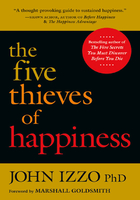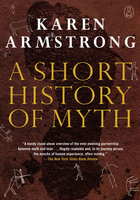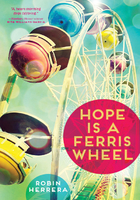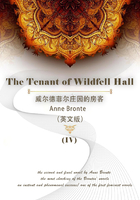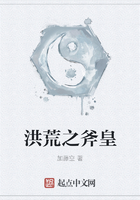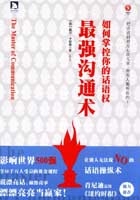Introduction
The baby boomers saw themselves as pioneers of a new world – freer, fresher, fairer and infinitely more fun. But they were wrong. The world they made for their children to live in is a far harsher one than the world they inherited.
The first of the men and women born in the baby boom that followed the Second World War started to come of age in the radical sixties. Not since 1918 had the young talked serious revolutionary politics as they did in the sixties.
But in 1918, the men who came back from the war knew that the world was amiss, and knew what they wanted to do about it. So when at last the generation that fought the First World War came to power, in 1945 under Major Clement Attlee, they changed the world. The 1942 Beveridge Report had called for the abolition of the 'five giants' – Want, Ignorance, Disease, Squalor and Idleness – and between 1945 and 1951, despite a war-ruined economy, the Attlee government set about a systematic and remarkably successful assault on those evils.
Exactly fifty years later, revolutionary talk was heard across the land again. But the generation of 1968 was not at all like the generation of 1918. Sixties radicalism decayed fast. It decayed, not because it was groundless, but because it was not grounded. What began as the most radical-sounding generation for half a century turned into a random collection of youthful style gurus who thought the revolution was about fashion; sharp-toothed entrepreneurs and management consultants who believed revolution meant new ways of selling things; and Thatcherites, who thought freedom meant free markets, not free people. At last it decayed into New Labour, which had no idea what either revolution or freedom meant, but rather liked the sound of the words.
The sixties really began in 1956 with John Osborne's Look Back in Anger, but few people noticed until the Beatles released 'Love Me Do' in October 1962. By then the oldest of the baby boomers were fully seventeen years old, and within three years they were to know everything there was to know, from the secrets of the universe to the correct way to roll a joint.
The short sixties – from the release of 'Love Me Do' to the student sit-ins and the Paris événements of summer 1968 – was a wonderful time to be young. People took the young seriously for the first time, which was good. But the young took themselves seriously, which was less good. The young thought New Jerusalem was round the corner, its arrival hindered only by the conservatism of Harold Wilson's Labour government. They did not realise that they were living in New Jerusalem; that it would all be downhill from then on; and that their generation, which benefited from this dazzling array of freedoms, would, within twenty years, destroy them.
Nor did they realise – for they had never heard of Tony Blair – how lucky they were to have Wilson to hate. Without Wilson, the baby boomers might well have had to fight and die in Vietnam, for a lesser Prime Minister could have been cowed by President Lyndon Johnson and America's power to cripple Britain's economy.
For the first time since the Second World War, there was money, there was safe sex, there was freedom, and no one bothered to stop and think with what misery these things had been bought by earlier generations, for the baby boomers rather despised the past, a small faraway country of which they knew little. Most of the baby boomers hardly realised the privations of their parents, and the struggle that had taken place to ensure that they were not equally deprived.
Before the First World War, 163 of every 1,000 children died before their first birthday. The figure was twice as high for working-class children. It is 15 per 1,000 today. Of those children that survived, a quarter did not live beyond the age of four. In the early weeks of the National Health Service in 1948, consultants reported shoals of women coming in with internal organs that had been prolapsed for years, and men with long undiagnosed hernias and lung diseases.
In the thirties, my grandmother, widowed by the First World War, kept a tin on a shelf, into which she put every spare coin she could, against the day when one of her children might need the doctor. She was a rather wise old lady, so I felt a sense of shock when, as a teenager, I received a letter from her, and realised she wrote like a five-year-old. Like millions of her generation, she was never taught to write properly.
Working-class children in the thirties seldom had enough to eat and received just enough education to equip them for routine work. A father out of work meant a family near starvation. My parents assumed that a working-class child was smaller than a middle-class child, for want of good food. Most of our parents came out of the Second World War determined to change all that.
And that is why the Attlee settlement of 1945–51 gave working people leisure, healthcare, education and security for the first time. In the fifties, older children, especially those at work, had disposable income. Young people became, for the first time, serious consumers, able to make choices and support those choices with cash.
We were the first generation for which university education was not a privilege of wealth. In the sixties, for the first time, proletarian and regional accents were heard throughout the British university system, and (except in a few ancient institutions) their owners were no longer made to feel out of place. We grew up at the time when – as he famously told the Labour Party conference – Neil Kinnock was 'the first Kinnock in a thousand generations' to have a university education. The idea that one might have to pay for education, at any level, seemed to us primitive.
How quickly these things get taken for granted! All previous generations thought of free health care as nothing short of miraculous, but the baby boomers casually assumed that it was the ordained order of things. It was not until the eighties that they started to see how privileged they were, and the National Union of Public Employees produced a T-shirt for them, proudly bearing the slogan 'Born in the NHS'.
Their parents and elder brothers and sisters had battled for health care, for education, for full employment and economic security. These battles having apparently been won, the baby boomers fought for, and won, the right to wear their hair long and to enjoy sex. Proud of having conquered our inherited inhibitions, in our foolishness we thought there was little else to conquer.
Our conviction that everything was easy received repeated boosts when the battlements of the fifties collapsed as the sixties generation approached them, without having to be stormed. National service ended in 1961. The contraceptive pill arrived. There was full employment. People stopped being so frightened of the boss.
So the baby boomers set about destroying the old certainties. These included some reactionary prejudices, but the certainties of the Attlee settlement – that no one should be allowed to die of a treatable illness, that no one should starve, that everyone should get education – were in the firing line at least as much as the certainty that the British class system was the right and natural order of things.
Even the certainties of post-Hitler liberalism – for example, that torture is always, under all circumstances, wrong – even these, if you are questioning everything, have to be questioned. So today, with the sixties certainty that there are no immutable truths about morality, elegant columnists and smartly tieless politicians of the baby boomer generation put up elaborate scenarios in which torture can be justified, and explain how a truly swinging government can be quite relaxed about the fact that Britain is now routinely complicit in torture; and I feel like pulling their fingernails out, very slowly, one by one.
While the philosophy of the sixties seemed progressive at the time, it was really symbolised by the television picture from 1968 of a flower child in a flowing skirt, dancing in a circle and singing, 'Down with police, down with income tax'. It was the direct intellectual predecessor of the Thatcherite view that there is no such thing as society. The children of the sixties were the parents of Thatcherism.
The baby boomers we remember are not the political reformers, but the millionaires. People like Richard Branson, who made his first fortune with Virgin Records; Tony Elliott, who founded Time Out; Felix Dennis, who became a multimillionaire magazine publisher; Greg Dyke, who made a fortune in commercial television before becoming BBC Director General. All these four came straight out of sixties rebellion, and Elliott and Dennis from sixties 'alternative' publishing. Dennis, now a powerful commercial mogul, was a sixties hero who went to prison in 1971 as a co-editor of Oz magazine after the longest conspiracy trial in history. There is no contradiction between his rebellion then and his eminence now. He has not sold out. There was nothing to sell.
The baby boomers destroyed their inheritance, and declined to show the same benevolence to the next generation as was shown to them. They benefited from the victory over Nazism and the Attlee settlement. As teenagers they had spare cash, and fun ways to spend it – things that their parents and grandparents could only dream of. As students they had grants, and the taxpayer picked up the bill for their education. A phrase often heard among their parents was: 'I want him [and increasingly her] to have the opportunities I never had.' Our parents may have grudged us our freedom, but they never grudged us their money, even though most had little enough of it.
Now the children of the sixties are parents, there seems to be a special venom in the loathing they show to their young. A popular car sticker around the turn of the century bore the gloating slogan 'Spending the kids' inheritance'. They sneer about their student children's penury. 'He [or she] has come home for another handout,' they say with theatrical weariness, yet the only reason their children have to come cap in hand for money is that the baby boomers climbed the ladder provided by the welfare state, then pulled it up after them.
At some level we baby boomers know we have squandered the inheritance our parents worked so hard to give us. It is as though the sixties generation decided that the freedom from worry which they had enjoyed was too good for their children, so they kicked away their children's legs, and now they sneer at them for being lame.
I see that, without noticing, I have started using 'we' instead of 'they'. I was one of the blessed: born in 1945, four days after VE Day and a month before Clement Attlee became Prime Minister. I recovered from polio in an NHS hospital; my tonsils lie, carefully preserved no doubt, in another one; and my parents did not have to live in terror of the hospital bill, as their parents would have done. I went to a new state grammar school at the age of eleven, and to a new university in the sixties, both of them monuments to the Attlee settlement.
As a student, my grant gave me enough to live on and I did not have to work in termtime, or beg from older relatives, or build up a mountain of debt, as my children have to do. I had small seminar groups, and tutors who encouraged my intellectual curiosity, since they were under no pressure to sell me another 'product' in the form of a useless but expensive further degree. I did not have to deal with the rapacious landlords my children meet today, who have grown to regard students as easy pickings. And I and my friends studied what we enjoyed, instead of doing what our children are told to do, which is to take whatever Gradgrind course will commend itself to employers.
It was the baby boomers who, in the sixties and the seventies, fought for greater intellectual freedom for students, and freedom from financial worry, which meant higher grants. (We took it for granted that we did not have to worry about paying for our tuition.) They were led by baby boomers like Jack Straw, who became president of the National Union of Students in 1969, and Charles Clarke, who got the same job in 1975. It was the baby boomers in government who took away these freedoms; and Clarke, as Education Secretary, who removed all grants and imposed tuition fees. The freedoms the baby boomers fought for, they deny to their children.
Schools, after a quick burst of sixties freedom, are being sent back to the fifties as fast as possible. The sixties generation in government has brought back the school uniforms it once rejected, the religious control of schools it rejected, and the rote learning it rejected, in the form of a rigid national curriculum and a punishing regime of testing.
Schools have been turned into education factories, forcing grounds in which a set of predetermined information is crammed into young heads, and in which there is no place for flights of fantasy or inspirational teaching. And the penalties for truanting are growing, with police now routinely frogmarching truants to their school. One of the arguments used in favour of school uniforms is that they help the police to recognise those who ought to be at school. We are forcing our children into prison uniform so they will be instantly recognisable when they scale their prison walls.
It is as though the children of the sixties decided that the freedom they enjoyed was too good for their children. Unlike the baby boomers, their children leave university burdened with debt. The sixties generation reinstalled the deference it rejected. Now they are in charge, politicians of the sixties generation realise that deference can be helpful to governments. So they are trying to revive it – only they call it 'respect', just as their parents did.
They decline to treat the young with the respect they themselves successfully demanded when they were young. Here's a straw in the wind. In the early days of University Challenge, at the end of the sixties, presenter Bamber Gascoigne gave his young teams respect, kindness and understanding. In the revived University Challenge, Jeremy Paxman sneers at them, bullies them, and holds them up to ridicule. It would not have been accepted when the baby boomer Paxman was a student, but the young are much less powerful now.
There is a generation war emerging. Wealth is being sucked up the age ladder, and the young have to struggle harder than they did before. Opinion polls show that the now elderly baby boomers will use their increasing voting power – for they constitute a growing segment of the electorate – to ensure a comfortable old age for themselves. When the baby boomers were young, they believed society could afford student grants; now they are old, they think it can afford pensions. There is nothing like impending and perhaps impoverished old age to remind a person that there is, after all, such a thing as society. They risk trampling on the impoverished generations that come after, and there is plenty of evidence that those generations resent it.
Almost none of the baby boomers learned to value the extraordinary legacy they had, and today most of them sneer at it. The right say that it was irresponsible of our postwar leaders to put the nation to the expense of educating, housing, employing and feeding the poor, the old and the young, for the nation could not afford it. The left say that Attlee betrayed the working class by not going further. Neither of them care about what was achieved. The right does not want to defend it, and the left cannot be bothered.
In place of the great ideals of the Attlee government, the baby boomers idealised youth and modernity. They created a society where the ultimate good lay in being new, and young, and modern, and new, especially new, which ironically is why there will be no more baby boomer Prime Ministers after Gordon Brown. The two Prime Ministers from the generation of 1918 who changed the world – Clement Attlee, who created the welfare state, and Harold Macmillan, who dismantled the British Empire – were both aged sixty-two when they got the job. The children of the sixties produced just two Prime Ministers, Tony Blair and Gordon Brown. Blair's predecessor John Major is two years too old to be a baby boomer, and all Prime Ministers after Brown will certainly be too young, for today everyone seems sure that sixty-two is far too old. The fact that the baby boomers are now all too old ever again to be trusted with the nation's affairs is entirely their fault. When they were young, they created a cult of youth, and now they are old they would like to undo it, but they can't.
The baby boomers had everything. We thought the world could only get better. Our parents watched us and shook their heads, saying, 'It will end in tears.' And it has.

